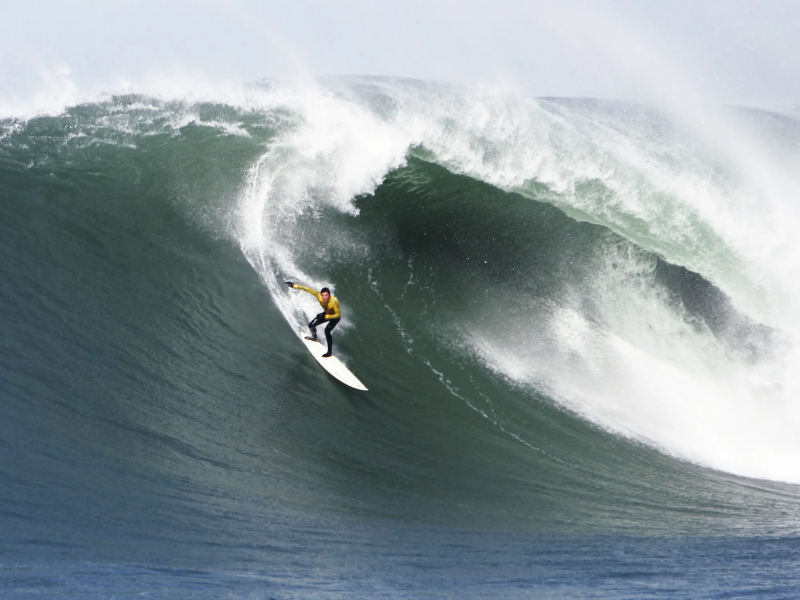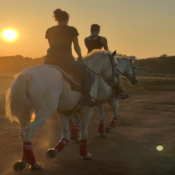Safety First in the Surf: Essential Gear and Precautions for Rafting in Sri Lanka

Safety First in the Surf: Essential Gear and Precautions for Rafting in Sri Lanka
Sri Lanka, with its lush rainforests, cascading waterfalls, and thrilling white-water rapids, offers an exhilarating playground for adventure enthusiasts. Rafting in Sri Lanka is an unforgettable experience, but it’s crucial to prioritize safety amidst the excitement. In this comprehensive guide, we’ll delve into the essential gear, precautions, and responsible practices to ensure a safe and enjoyable rafting adventure in this tropical paradise.

Table of Contents
ToggleUnderstanding the Risks: Potential Hazards of Rafting in Sri Lanka – Safety First in the Surf
While the allure of conquering the rapids is undeniable, it’s important to acknowledge the potential hazards that come with the territory. Knowing about these risks will help you make smart choices and take the right safety measures:
The Power of the Rapids – Safety First in the Surf
The intensity of rapids varies, and each class presents unique challenges. Class I and II rapids are generally calm and suitable for beginners, while Class III and IV rapids demand more skill and experience. Class V and VI rapids are extremely challenging and should only be attempted by expert rafters with proper training.
Unpredictable Weather – Safety First in the Surf
Sri Lanka’s tropical climate can bring sudden weather changes, including heavy rain and thunderstorms. These conditions can affect water levels and the intensity of the rapids, making it essential to stay updated on weather forecasts and heed any warnings from your rafting guide.
Hidden Obstacles – Safety First in the Surf
Submerged rocks, fallen trees, and other debris can pose significant risks, especially in fast-moving water. It’s crucial to pay close attention to your surroundings and follow your guide’s instructions to navigate safely through these obstacles.
Cold Water – Safety First in the Surf
Even in a tropical country like Sri Lanka, the water in some rivers can be surprisingly cold, especially during the monsoon season. Hypothermia, a disease that can be life-threatening, can happen after being in cold water for a long time. Wearing appropriate thermal protection is essential to prevent hypothermia.
Wildlife Encounters – Safety First in the Surf
While rare, encountering wildlife, such as crocodiles or snakes, is a possibility in Sri Lanka’s rivers. It’s important to remain calm and follow your guide’s instructions on how to react safely in such situations.
Essential Gear for Safe Rafting – Safety First in the Surf
Equipping yourself with the right gear is crucial for a safe and comfortable rafting experience. Here’s a list of essentials you should have before embarking on your adventure:
Personal Flotation Device (PFD)
A PFD, or life jacket, is your most important piece of safety equipment. It should be properly fitted and Coast Guard-approved. Make sure it’s snug, but not too tight, so you can move around easily.
Helmet
A helmet protects your head from potential impacts with rocks or the raft itself in case of a fall or collision. Make sure that it fits well and tightly on your head.
Wetsuit or Drysuit
Depending on the water temperature and the time of year, you’ll need either a wetsuit or a drysuit to provide thermal insulation. A wetsuit traps a thin layer of water against your skin, which your body heats up to keep you warm. A drysuit, on the other hand, keeps you completely dry, making it ideal for colder conditions.
Footwear
Sturdy footwear with good grip is essential for navigating slippery rocks and uneven terrain. Avoid wearing flip-flops or sandals, as they can easily come off in the water. Opt for water shoes or closed-toe shoes with non-slip soles.
Throw Bag
A throw bag is a rope-filled bag used to rescue someone who has fallen out of the raft. It’s an essential safety tool that should be readily available on every rafting trip.

Precautionary Measures for a Safe Rafting Trip – Safety First in the Surf
Taking proactive measures before and during your rafting trip can significantly enhance your safety. Here are some essential precautions to keep in mind:
Choose a Reputable Operator
Selecting a licensed and experienced rafting company is crucial. Research different operators, read reviews, and inquire about their safety record, guide certifications, and equipment quality. A reputable company will prioritize safety and provide you with a well-maintained raft and experienced guides.
Listen to the Safety Briefing
Pay close attention to the pre-trip safety briefing provided by your guide. They will explain essential safety procedures, paddling techniques, and how to react in different scenarios. Following their instructions is crucial for your safety and the safety of others.
Paddle with a Partner or Group
Rafting with others offers mutual support and increases your chances of a safe rescue in case of an emergency. If you’re a beginner, it’s advisable to join a guided group rather than attempting to raft alone.
Stay in the Raft
Resist the temptation to jump or dive out of the raft, especially in unfamiliar waters. Hidden obstacles or strong currents can pose serious risks. If you do fall out, try to stay calm, float on your back with your feet downstream, and follow your guide’s instructions.
Know Your Limits
Pick a kayaking trip that is right for your level of health and skill. Don’t overestimate your abilities, as pushing yourself beyond your limits can lead to accidents. If you’re unsure, start with a beginner-friendly trip and gradually progress to more challenging rapids as you gain experience.
Rafting Etiquette and Responsible Practices – Safety First in the Surf
Being a responsible rafter involves respecting the environment, being mindful of others, and adhering to safety guidelines. Remember these important things:
Respect the Environment
Minimize your impact on the natural surroundings by avoiding littering, staying on designated trails, and refraining from disturbing wildlife or vegetation. Leave the river and its surroundings as you found them, so others can enjoy the same pristine beauty.
Be Mindful of Others
Share the river responsibly by giving other groups enough space and avoiding overcrowding at popular spots. Be courteous and avoid excessive noise or disruptive behavior that could disturb other rafters or wildlife.
Follow Instructions
Obey your guide’s commands at all times. They are experienced professionals who know the river and its potential hazards. Their instructions are designed to keep you safe, so listen carefully and follow them promptly.
Leave No Trace
Pack out all trash and food scraps, including biodegradable items like fruit peels and apple cores. These can attract wildlife and disrupt the ecosystem. Clean up the water after you use it.
Emergency Preparedness – Safety First in the Surf
While taking precautions can significantly reduce risks, it’s essential to be prepared for emergencies. Here are some things you can do to stay safe:
Learn Basic First Aid
Having basic first aid knowledge can be invaluable in handling minor injuries. Consider taking a first aid course before your trip or carrying a first aid kit with essential supplies.
Carry a Communication Device
Bring a waterproof phone or a two-way radio in case of emergencies. Make sure it’s fully charged and stored in a waterproof case. Inform someone on shore about your rafting plans and expected return time.
Know the Emergency Procedures
Familiarize yourself with the rafting company’s emergency protocols. Know what to do in case of a capsize, injury, or other unexpected situations.
Stay Calm and Follow Instructions
In case of an emergency, remaining calm and following your guide’s instructions is crucial. Panicking can worsen the situation and hinder rescue efforts. Trust your guide’s expertise and follow their lead to ensure everyone’s safety.

Conclusion – Safety First in the Surf
Rafting in Sri Lanka is an adventure of a lifetime, offering a thrilling experience amidst breathtaking scenery. By prioritizing safety, equipping yourself with the right gear, and following responsible practices, you can create unforgettable memories while minimizing risks. Remember, safety first in the surf will ensure a fun and rewarding rafting adventure for everyone involved. So gear up, embrace the challenge, and let the rapids carry you on an unforgettable journey through Sri Lanka’s stunning landscapes.
Recent Posts
Kitulgala on Horseback: Explore the Countryside on a Scenic Trail Ride
Spiritual Sites Near Kitulgala: Discover Ancient Temples and Sacred Places
Kitulgala for Digital Nomads: Work Remotely in a Stunning Natural Setting
Tags





